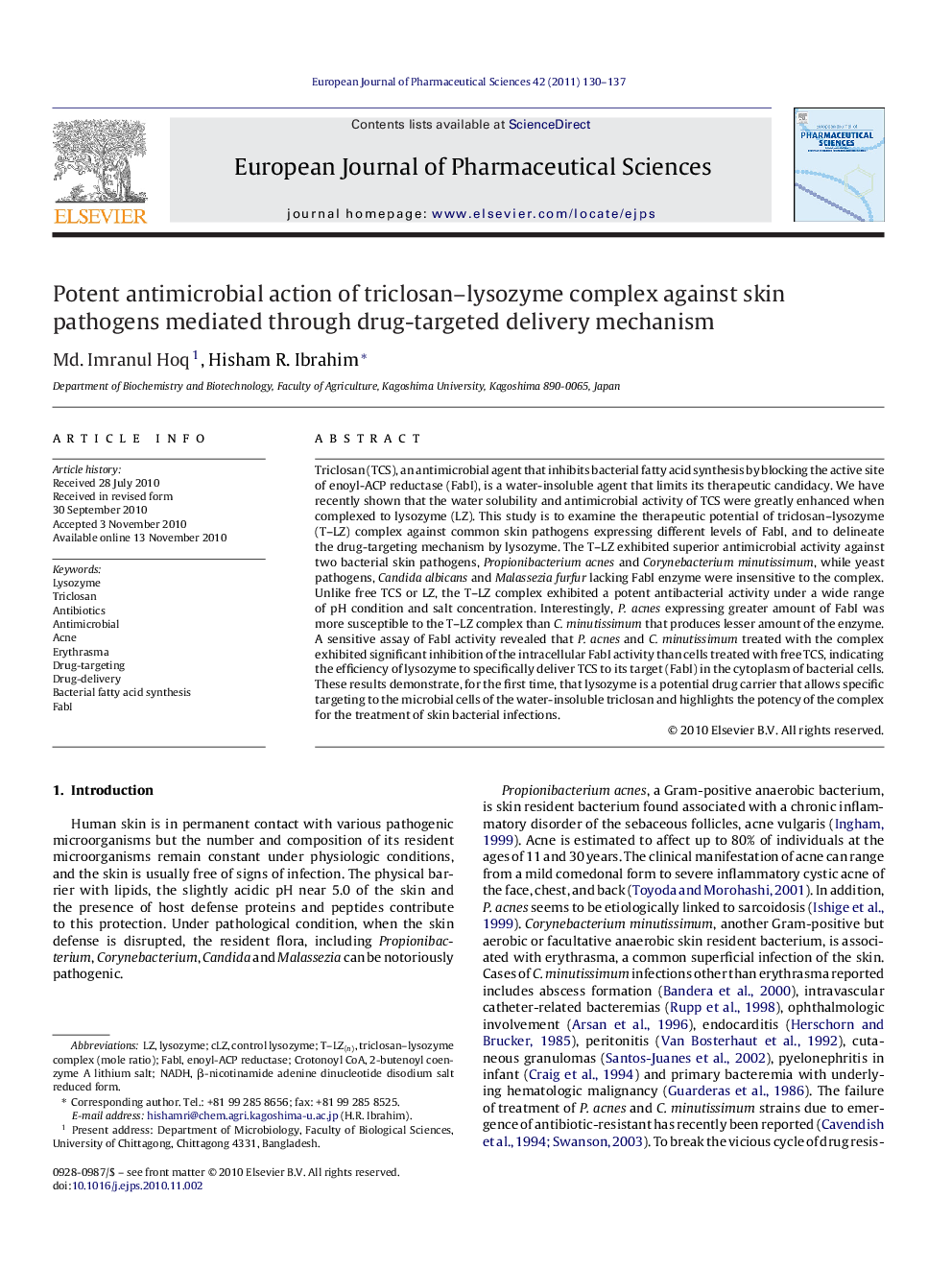| Article ID | Journal | Published Year | Pages | File Type |
|---|---|---|---|---|
| 2481202 | European Journal of Pharmaceutical Sciences | 2011 | 8 Pages |
Abstract
Triclosan (TCS), an antimicrobial agent that inhibits bacterial fatty acid synthesis by blocking the active site of enoyl-ACP reductase (FabI), is a water-insoluble agent that limits its therapeutic candidacy. We have recently shown that the water solubility and antimicrobial activity of TCS were greatly enhanced when complexed to lysozyme (LZ). This study is to examine the therapeutic potential of triclosan-lysozyme (T-LZ) complex against common skin pathogens expressing different levels of FabI, and to delineate the drug-targeting mechanism by lysozyme. The T-LZ exhibited superior antimicrobial activity against two bacterial skin pathogens, Propionibacterium acnes and Corynebacterium minutissimum, while yeast pathogens, Candida albicans and Malassezia furfur lacking FabI enzyme were insensitive to the complex. Unlike free TCS or LZ, the T-LZ complex exhibited a potent antibacterial activity under a wide range of pH condition and salt concentration. Interestingly, P. acnes expressing greater amount of FabI was more susceptible to the T-LZ complex than C. minutissimum that produces lesser amount of the enzyme. A sensitive assay of FabI activity revealed that P. acnes and C. minutissimum treated with the complex exhibited significant inhibition of the intracellular FabI activity than cells treated with free TCS, indicating the efficiency of lysozyme to specifically deliver TCS to its target (FabI) in the cytoplasm of bacterial cells. These results demonstrate, for the first time, that lysozyme is a potential drug carrier that allows specific targeting to the microbial cells of the water-insoluble triclosan and highlights the potency of the complex for the treatment of skin bacterial infections.
Keywords
Related Topics
Health Sciences
Pharmacology, Toxicology and Pharmaceutical Science
Drug Discovery
Authors
Md. Imranul Hoq, Hisham R. Ibrahim,
